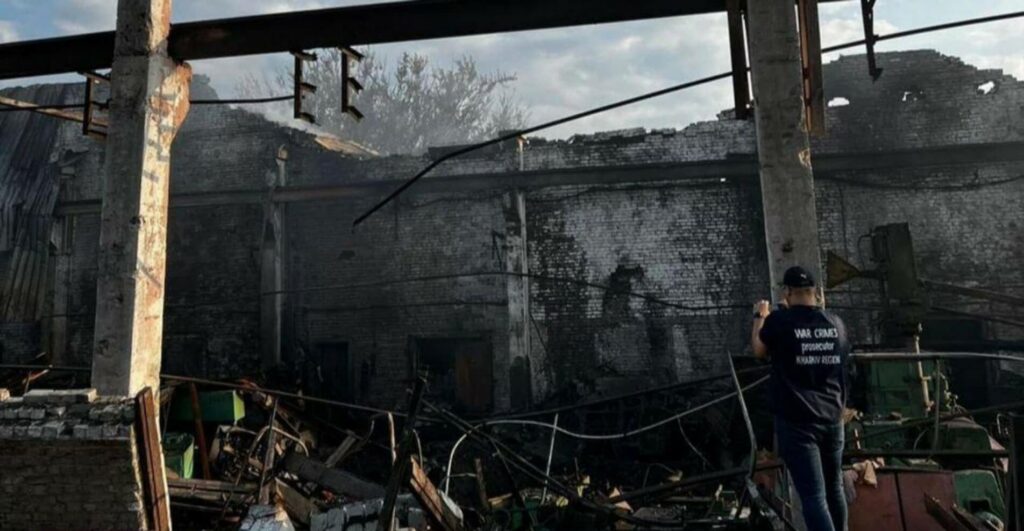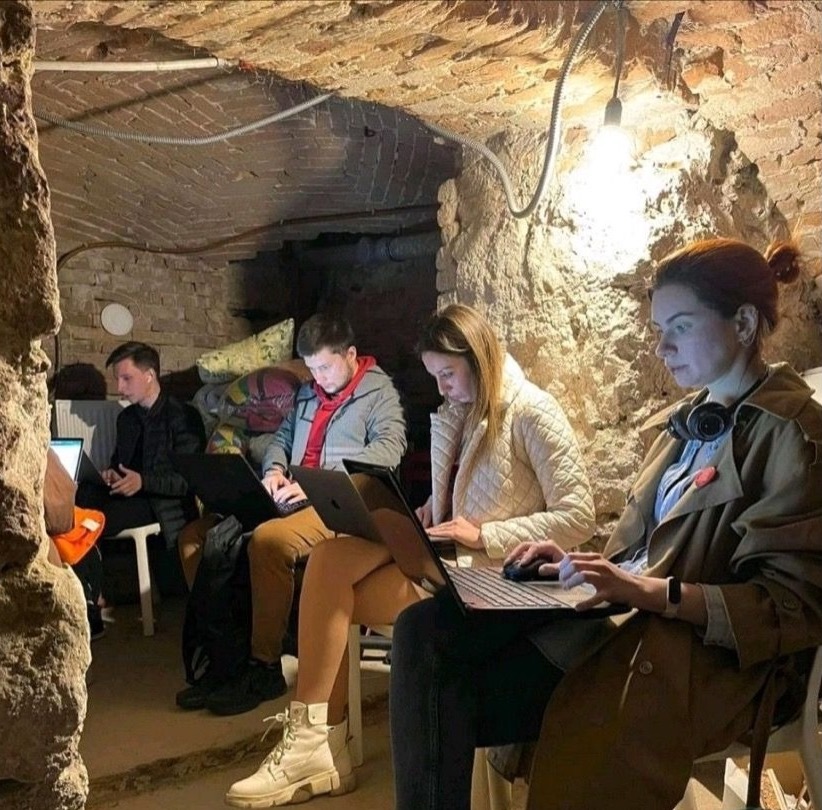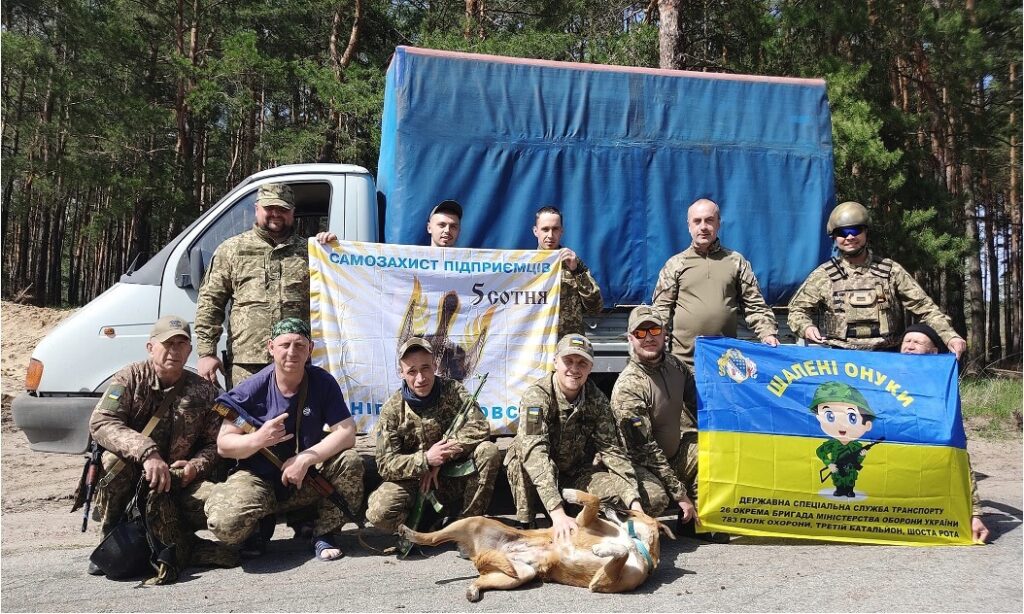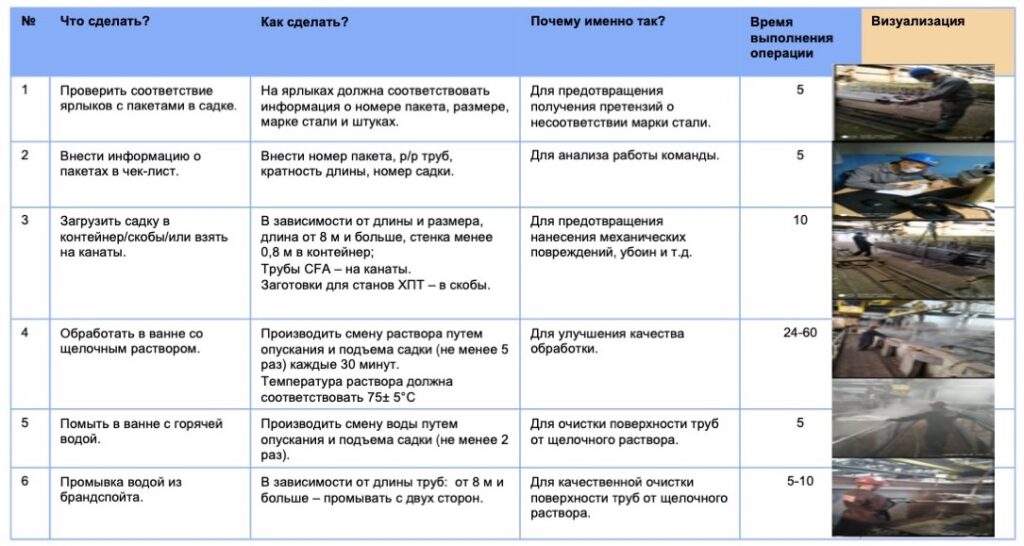This article is a transcript from Serhii Komberianov’s how to Apply Lean Thinking During a Crisis keynote at UK Lean Summit 2023 on the 19th April. Serhii is President of Lean Institute Ukraine. If you would like to watch this keynote, please watch the YouTube video below.
Introduction to How to Apply Lean Thinking During a Crisis
We (Ukraine) were happy before the war. Our country is the second biggest in Europe. We have a population of 43 million in our country (Ukraine). We were happy to present our lean cases in Ukraine. Many people visited us just to see how we were progressing on our lean journey.
We were also happy with the results from lean. We had lean forums where some of the biggest lean coaches were presenting. Everything was fine in our country.
The Russian Invasion
On the 24th of February 2022, the Russian invasion happened, and more than 8 hundred thousand Ukrainians lost their homes during seven months of war. Almost 7 million Ukrainians had to relocate to safer regions of Ukraine. They destroyed hundreds of factories. During a Zoom Call with one of our clients where we were helping them relocate to a safer place, the Russians destroyed one of their factories. Fortunately, no one sustained injuries.

57% of Ukrainian companies have ceased operations. Exports have decreased by 50% from February to March 2022. Blockades have totally halted shipping. As of May 2023, 5.5 million people have left Ukraine as refugees, whilst 6.4 million have relocated inside the country.
Main problems reported by Ukrainian company leaders
Our clients’ leaders reported the two biggest problems to us. The first problem was the struggle of leadership to adjust to the new reality. The second, was a loss of experienced people and the need for the rapid development of capabilities. We believed that lean would help us with these problems. We already had good examples of real leadership from our president Zelenski. Despite the advice of foreign leaders, refused to leave the country. Zelenski was with his people. For us and the leaders of our companies it was important to follow these steps and to be a true leader in this terrible environment.
Key Problems
What were the key problems that our leaders faced? The first issue was the lack of experience in handling extreme situations. War is a one-of-a-kind type of problem, and now we recognise the need to be prepared for any circumstance. All our efforts should have been focused on proactive preparation.
Another problem was there were too many life-or-death tasks to do at once. It was a burden for our leaders, and they were dealing with such type of tasks each day. Managers were also afraid to do anything because they believed it could make the situation even worse. You can imagine the circumstances we were working in. Asking people to come to work and perform their duties posed a significant challenge, considering that they were primarily located in bombing shelters.

But you need to show your strengths and believe in victory, and to do your job. For example, to do pipework, build furniture and deliver all the shipments to your clients. Life should continue, and we needed to support our country and people with stability such as salaries, the economy etc. Given the circumstances, it was an emotional portion of the leader’s activity when they had to ask people to come to work. The Lean Institute Ukraine supported to build units in Kiev and Kharkiv. Unfortunately, one of these offices suffered partial destruction. hard to imagine how to work in such offices, or even how to find answers to tell people what will be next, but we made it manageable.
Key Findings
We had some findings that I would like to share with you.
Working Effectively in Smaller Groups
Companies found it more effective to work in smaller groups within the organisation, rather than trying to survive as a big enterprise. This was a crucial finding for us. By splitting into smaller independent groups, businesses managed to be more successful. Furthermore, different areas of Ukraine had a totally different situation. Some were more endangered like in the capitals and some eastern regions of Ukraine. However, some areas were safe environments, and you could manage to continue your activities. The groups in different areas had to be independent with different tasks. This helped our army, and it was a sign for us that we could do the same.
As you may be aware from the news, our army deployed small subdivisions that launched attacks against the Russian army. We, Ukraine, executed surprise attacks, before retreating. In contrast, the Russian army operated under a vertically integrated structure, relying on orders from their general at the top. However, our independent smaller groups effectively carried out successful attacks and winning battles. This reflected the same way we were working as enterprises. Overall, it was an important finding for our situation.
Breaking Down Goals, Targets and Tasks
To support people, we needed to give them small goals, small targets, and small tasks. What do I mean by this? When you have a war, this nightmare that has a huge implication on the situation, it’s impossible to have a greater goal such as how to achieve more market share or how to change your strategy. That’s why it is important to split your main goals and main targets for the company into smaller goals for people, so it will be more achievable.

In our situation, an example would be to tell employees to leave a factory straight away because it’s in danger and the enemy is coming. Do not give them tasks such as move the enterprise into somewhere else in Europe, or even relocate your factories to somewhere in the western part of Ukraine. These tasks ask for too much and, in such situations, certain people think ‘I will stay here, I will not do anything because it’s too much for me to achieve’. Then procrastination just covers everything.
However, if you break down tasks into smaller tasks, it will help. We saw the results of small goals and divisions for civilians when we tried to convince our relatives or workers to leave the endangered territories. Then after we gave them more purposeful tasks for our companies. For example, find a customer in a specific region or find money to pay the salaries. It was much easier for people to accomplish the smaller goals rather than the bigger visions.
Pandemic Preparation
An interesting finding was that COVID-19 prepared us for the war. It has taught us how to work remotely and how to use online/zoom calls, which were not so widely used in Ukraine previously.
thanks to the COVID-19 experience, almost immediately after the war started our clients at the Institute managed to do online training in Total Productive Maintenance (TPM), Training Within Industry (TWI) and some teaching and coaching. Before COVID-19 it would have been much harder to convince people even to communicate in such ways.
Leadership: “War Shows Who You Really Are”
Also, workers looked back at how leaders behaved in 2020 during the pandemic. What do I mean by this? If a leader behaved in an improper way with their people during the pandemic, then there was no loyalty from these people in the company during the war. But if the leader was good during the pandemic, then they had built loyal workers that were willing come for free (for some period) and who were going to help to rebuild a destroyed factory.
We have this exact case right now with one of our clients. It is important to remember that people have a good memory, and their loyalty is built on the leaders’ previous actions. Unfortunately, some of leaders were just so afraid. We had some bad cases of this for couple of months. These leaders did not pick up the phone because they were so afraid and believe me it will be remembered. It’s not a good behaviour for the leaders and they should remember this. It’s not like a one-time event; everything will continue, and you need to behave properly.
Losing Experienced People
The second biggest problem was losing experienced people. It was a huge problem. Some people joined the army. Ivan Shemta, a lean manager for one of our clients’ companies at Centravis (a pipe production company) joined the army to protect the country. 20% of workers in Ukraine have now joined the army. 30% of workers have left the country with women with children. We needed to continue our activities, shipments, and provision of services. However, it is almost impossible to do these activities because of the war and the described problems.

Training within Industry (or TWI) developed during the World War Two helped us a lot. It was a key instrument in this situation. We were thankful that we managed to have a skill matrix at all our clients’ factories.
We knew what professions, what knowledge was in danger, and we managed to create some job descriptions and developed new training for new people in our companies. It was a huge success. Why I’m saying this? Because other than just people leaving the country you many other existing problems e.g., bombings & lack of electricity. In particular, the biggest reason for stoppages based on OEE calculations for the equipment in our clients’ factories is sirens. You can’t work but you need to continue your activities in this environment due to TWI training. You can still help your company, you can keep some knowledge in your company and keep everything going, even in critical situations.

Overall Findings
What are the key findings of these problems? The skill matrix is super effective for any circumstance. I thinks we should maintain it properly in every company. There is always a risk that companies will lose critical knowledge due to the environment (of war). Some groups of workers are in more danger of this happening like maintenance workers. They are usually formed by men and smaller teams, but when they leave for the army for example some of their key skills can be left untreated. Through TWI we can manage to make it safer for a company to have everything it needs for new workers in the future.
In addition, people are afraid of being useless. Now they’re happy to do the work that they did not want to do before like Total Productive Maintenance (TPM). It was also crucial for us to understand that people are willing to do the job that they were not willing to do before the war. For example, we had some problems of implementing TPM because the operators believe it was not part of their job and they didn’t want to do it. But now operators want to be useful and help the company and country. All our projects are moving faster than before the war. This was an important and unexpected finding.
Final Words
I wanted to sound optimistic, and not sound like I’m asking for some support. We are resilient and for me it’s important that our companies are resilient. We are working hard to win, and victory is close. With your help and with our strengths and beliefs in our instruments that we have, everything will be fine for Ukraine and for the world.
This war also taught us how important it is to have the international connections and support. If we manage to maintain this in the future everything will be okay for our country.
Dan Jones Reflections on the Lean Movement Keynote from the UK Lean Summit is also available to watch here.